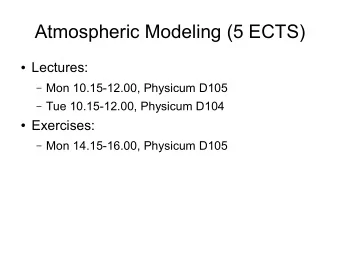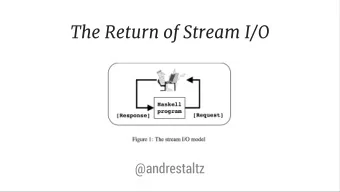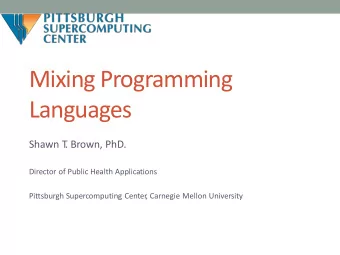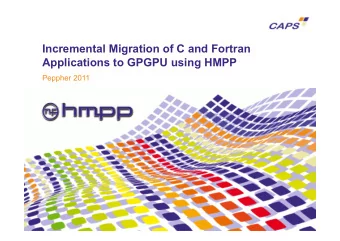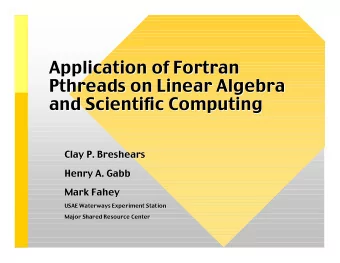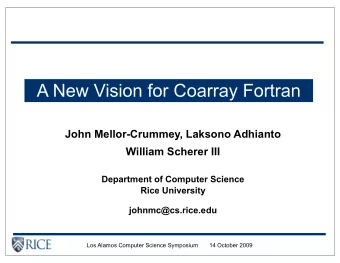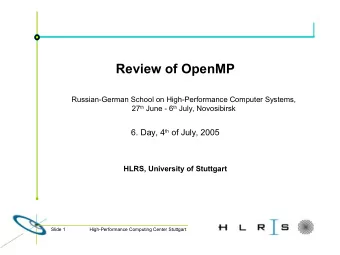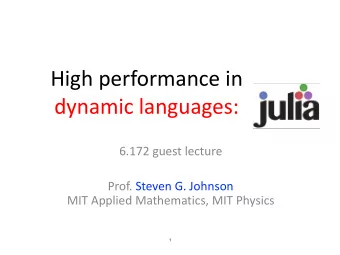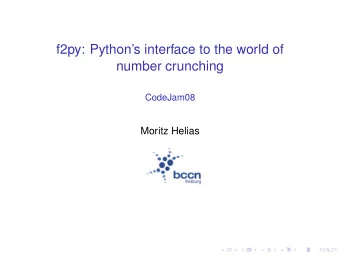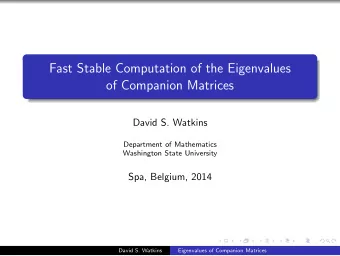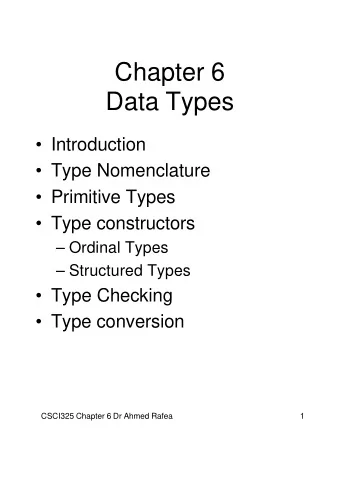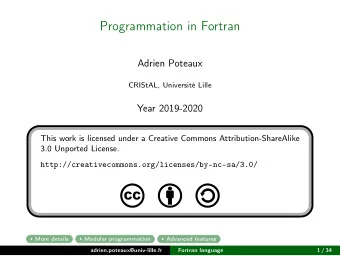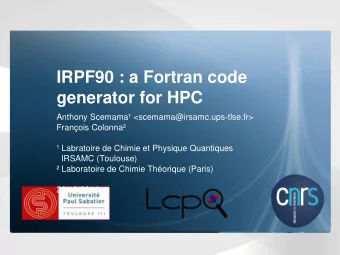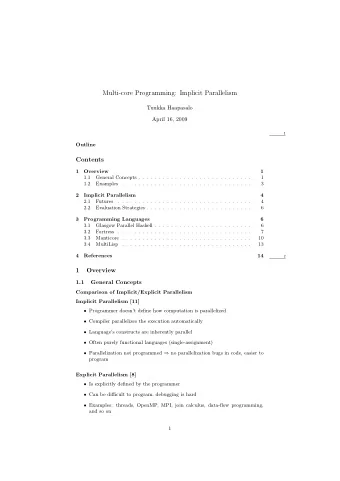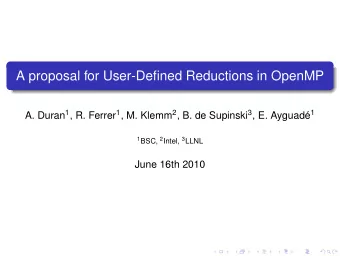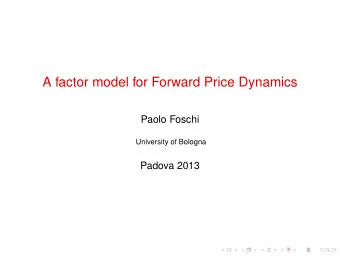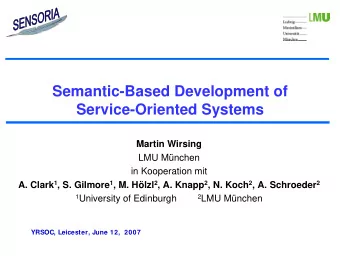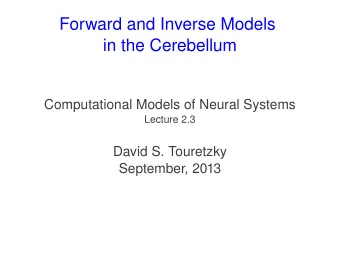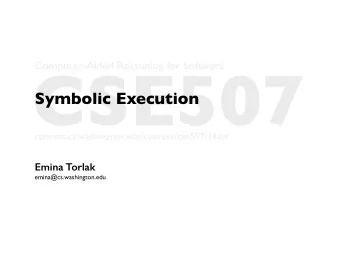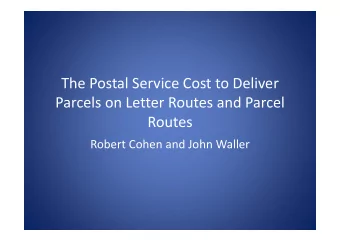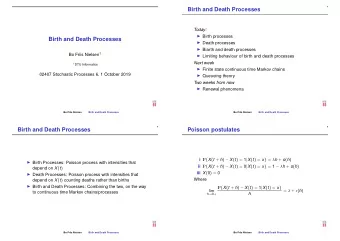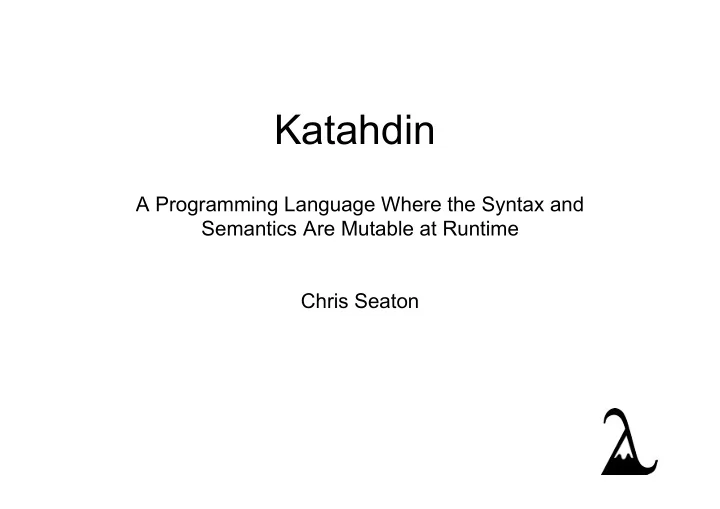
Katahdin A Programming Language Where the Syntax and Semantics Are - PowerPoint PPT Presentation
Katahdin A Programming Language Where the Syntax and Semantics Are Mutable at Runtime Chris Seaton Traditional Development Tools A different runtime for each language that you use Using more than one language in a program is hard
Katahdin A Programming Language Where the Syntax and Semantics Are Mutable at Runtime Chris Seaton
Traditional Development Tools • A different runtime for each language that you use • Using more than one language in a program is hard • Languages are fixed by the original developer • Developing new languages is hard
Fortran Python Program Program Fortran Compiler Python Interpreter Platform
What Do We Want? • We want a single runtime for multiple programming languages • We want to use more than one language in the same program, the same file, even the same line • We want to be able to extend languages as easily as we can define new functions • We want to easily define new languages
Katahdin A programming language and an interpreter • The syntax and semantics can be modified by the running program • Can add new constructs to the language, or define entire new languages • Composing the definitions for two languages allows you to use those two languages at the same time
Fortran / Fortran Python Python Program Program Program Katahdin Runtime Fortran Python Platform
How Does Katahdin Work? Take traditional development techniques and make them dynamic, runtime operations • How is the grammar expressed? • How is the grammar parsed ? • How are semantics expressed? • How do we create language definition modules ?
Grammar Grammar Parser Generator Parser Generator Compiler Compiler Runtime Runtime
Expressing Grammar in Katahdin • Based on Parsing Expression Grammars (PEGs) • Described by Bryan Ford of MIT (2004) and related to the work of Alexander Birman (1970) • Looks and feels very much like a regular expression or context- free grammar • Expressed using Backus-Naur Form (BNF) • My own extensions to better support modular grammars
Example: Modulo Operator class ModExpression : Expression { pattern { option leftRecursive; a:Expression "%" b:Expression } }
Katahdin’s Parsing Algorithm • Based on packrat parsing • Described by Bryan Ford (2002) • Basically a top-down, recursive-descent parser that backtracks • Sacrifices memory for speed − a linear time operation • Other projects successfully applying packrat parsers to PEGs, but not from a mutable grammar, as Katahdin is
Expressing Semantics in Katahdin • Semantics are the meaning of each construct in the language • Express semantics as code that is directly executed • Allows you to express one language in terms of another, or in terms of itself • Code is written in methods in the construct’s class statement
Example: Modulo Operator class ModExpression : Expression { pattern { option leftRecursive; a:Expression "%" b:Expression } method Get() { a = this.a.Get...(); b = this.b.Get...(); return a - (b * (a / b)); } }
Language Definition Modules • If you define all the constructs in a language like this, you have a complete definition of the syntax and semantics of the language • Store constructs in a module to be conveniently loaded • Katahdin can automatically load a module based on file extension • Users can explicitly load a module to merge with the current grammar
Results • I have achieved the goal of making a programming language where the syntax and semantics are mutable at runtime • My implementation of Katahdin is mature and stable • Implemented proof-of-concept language definitions for SQL, Python, Fortran • A paper describing the theory and implementation has been submitted for publication at GPCE 2007 • Error handling and performance need to be addressed − there is research that this work can be based on
Demonstration, Questions
Recommend
More recommend
Explore More Topics
Stay informed with curated content and fresh updates.
